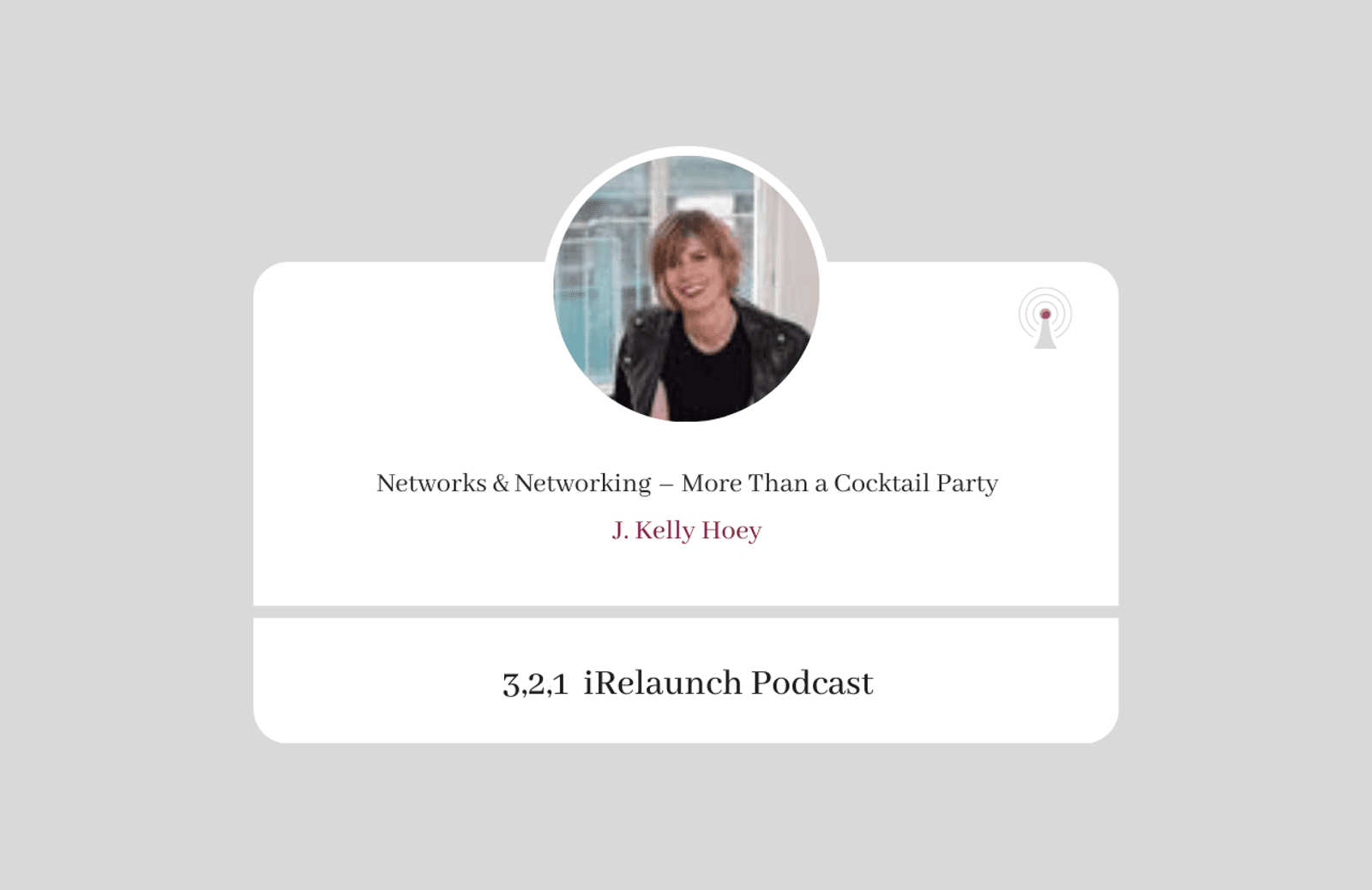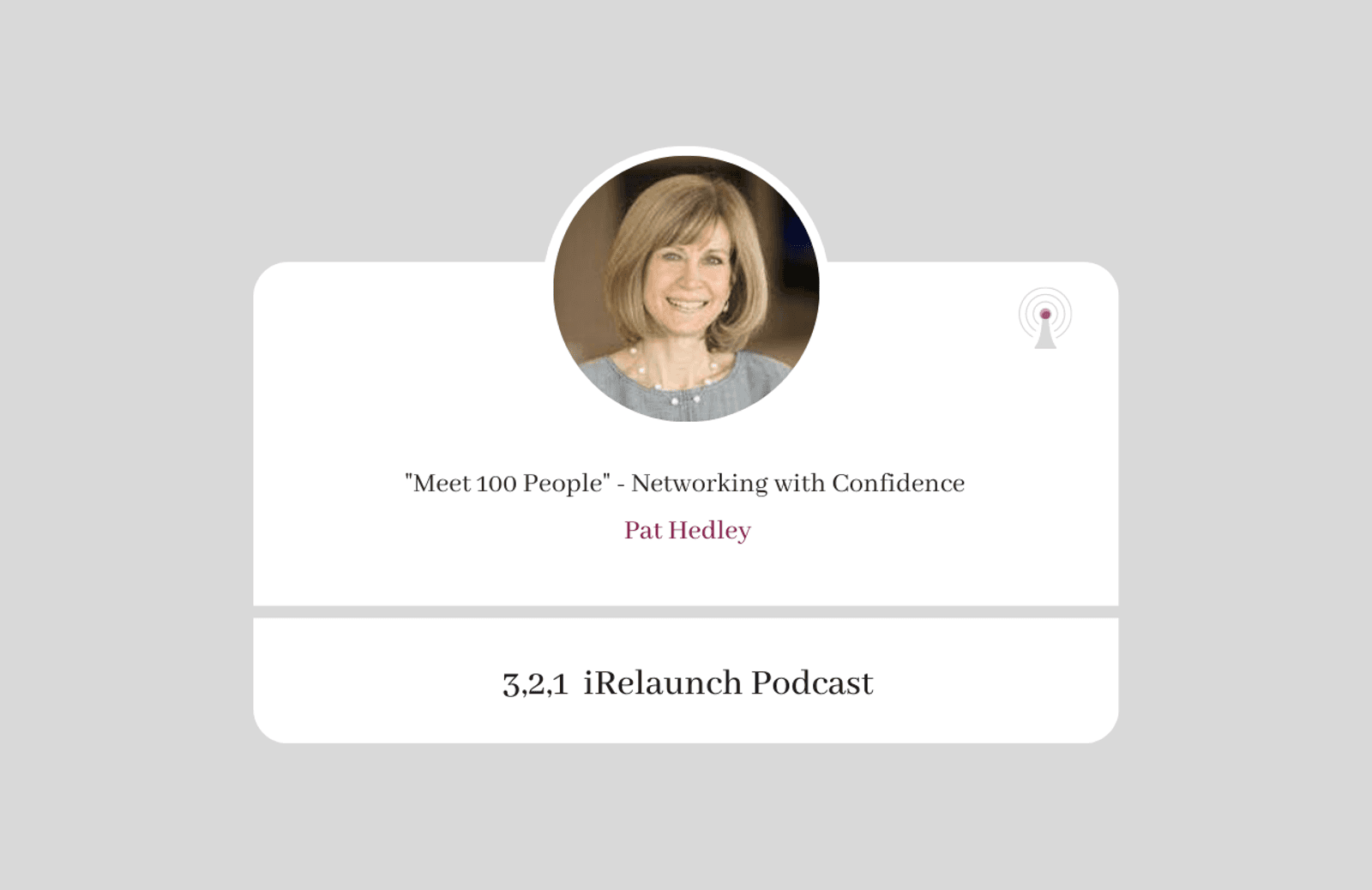You’re looking for a job and you know you’ve got to network. Good.
You’re even willing to network. Great!
Now it’s just a matter of the right conversation with the right person and you’ve got a new job. Awesome! ...
... Not so fast. Networking should be more than just a bunch of
coffees and random lunches in hopes of getting a job. Networking should
be about creating advocates, meaning you want to find someone who is
willing to utilize their “professional capital” on you and therefore
recommend and champion you.
Consider these networking scenarios:
Scenario One
Jane is looking to re-enter the workforce, and she’s reached out to a
former colleague, Suzanne. Suzanne and Jane did a few work projects
together years ago and things seemed to always go well. Now Suzanne has
agreed to meet Jane to discuss Jane’s career relaunch.
Jane and Suzanne talk and spend time catching up. During the
conversation, Jane tells Suzanne she’s really excited about getting back
to work and asks Suzanne to keep in her mind if something comes along
that may be of interest to Jane. Wanting to be helpful, Suzanne says
“Sure” and asks for Jane’s resume.
Lo and behold, three months later, Suzanne learns that Cindy is
hiring for an open position. Suzanne isn’t sure that this is something
that Jane’s qualified to do nor is she sure whether this position will
appeal to Jane. As a matter of fact, Suzanne isn’t even sure that Jane
is still looking. But again, wanting to be helpful, Suzanne hands Jane’s
resume to Cindy and says “Hey, my old colleague, Jane, is interested in
your open position, here’s her resume." Most likely when Suzanne passes
along the resume, Cindy’s busy doing something else. So, Jane’s resume
goes to the stack of resumes that Cindy will eventually read and Jane’s
candidacy will be considered along with everyone else’s.
Doesn’t this sound like a great outcome? Jane had just one chat with
Suzanne and now her resume is on a hiring manager’s desk. What more
could Jane want? The truth is Jane could want a lot more. But she’ll
have to work a little harder to get it.
Scenario Two
Jane is still looking to relaunch her career and is connecting with
her former colleague, Suzanne. Jane takes Suzanne out for a coffee and
asks what’s been happening with Suzanne’s career. During coffee, Jane
shares that she’s planning to re-enter the workforce and is currently
taking some time to research roles and companies. Suzanne suggests that
Jane visit the iRelaunch website (Suzanne just hired a relauncher who
said that iRelaunch provides tons of valuable info).
A few weeks later, Jane emails Suzanne and thanks her for the
iRelaunch recommendation. Jane mentions that she’s feeling much more
confident about returning, because she now recognizes she developed
valuable skills during her five years on the PTO Executive
Board. Additionally, Jane says that through her research she’s
identified a few roles that fit her skillset. Suzanne responds with a
quick “That’s great! Keep me posted on the search.”
After a few months, Jane is still job searching. She’s had numerous
informational interviews, a few formal interviews and a three-week
unpaid internship. Jane has kept Suzanne abreast of how things are going
via emails and another coffee date. With each email and conversation,
Jane shares that she has become even more focused on the type of role
she wants and how her skills will contribute.
Jane and Suzanne just had lunch, during which Jane told Suzanne that
her company just posted a position that would be perfect. Jane then
confessed concern about getting an interview because she didn’t match
all of the criteria in the posting. Suzanne replied, “Give me your
resume. I’m getting you this interview.”
Why in Scenario One did Suzanne simply drop off Jane’s resume whereas
in Scenario 2 Suzanne commits to getting Jane an interview?
- Scenario One
Suzanne knows that Jane is looking for a job. When
Suzanne learns of a job opening – she does all she can – she passes
along Jane’s resume.
- Scenario Two
Suzanne has gotten to know Jane over a period of
time and they develop a mutual, trusting relationship. Suzanne
understands Jane’s commitment to return to work and she’s now invested
in Jane’s goal. Consequently, she’s willing to do a lot more than just
drop off a resume. Suzanne will advocate (and advocate effectively) for
Jane because she knows: 1) exactly what type of job Jane wants and 2)
the skills and experiences Jane will leverage in a new role.
How did Jane cultivate a relationship with Suzanne? Why would Suzanne become Jane’s advocate in Scenario Two? Let’s review:
- Jane built and sustained a relationship with Suzanne vs having one “networking” conversation
- Jane listened to Suzanne’s advice and acted upon it
- Jane didn’t ask Suzanne for anything right away
- Jane articulated to Suzanne specific roles and types of positions she wanted
- Jane shared with Suzanne how she could leverage her background and prior experiences
- Jane’s updates proved to Suzanne her commitment to returning to work
The long-term relationship allowed Suzanne to get to know Jane and thus feel comfortable recommending her. Now that’s an ideal outcome.





